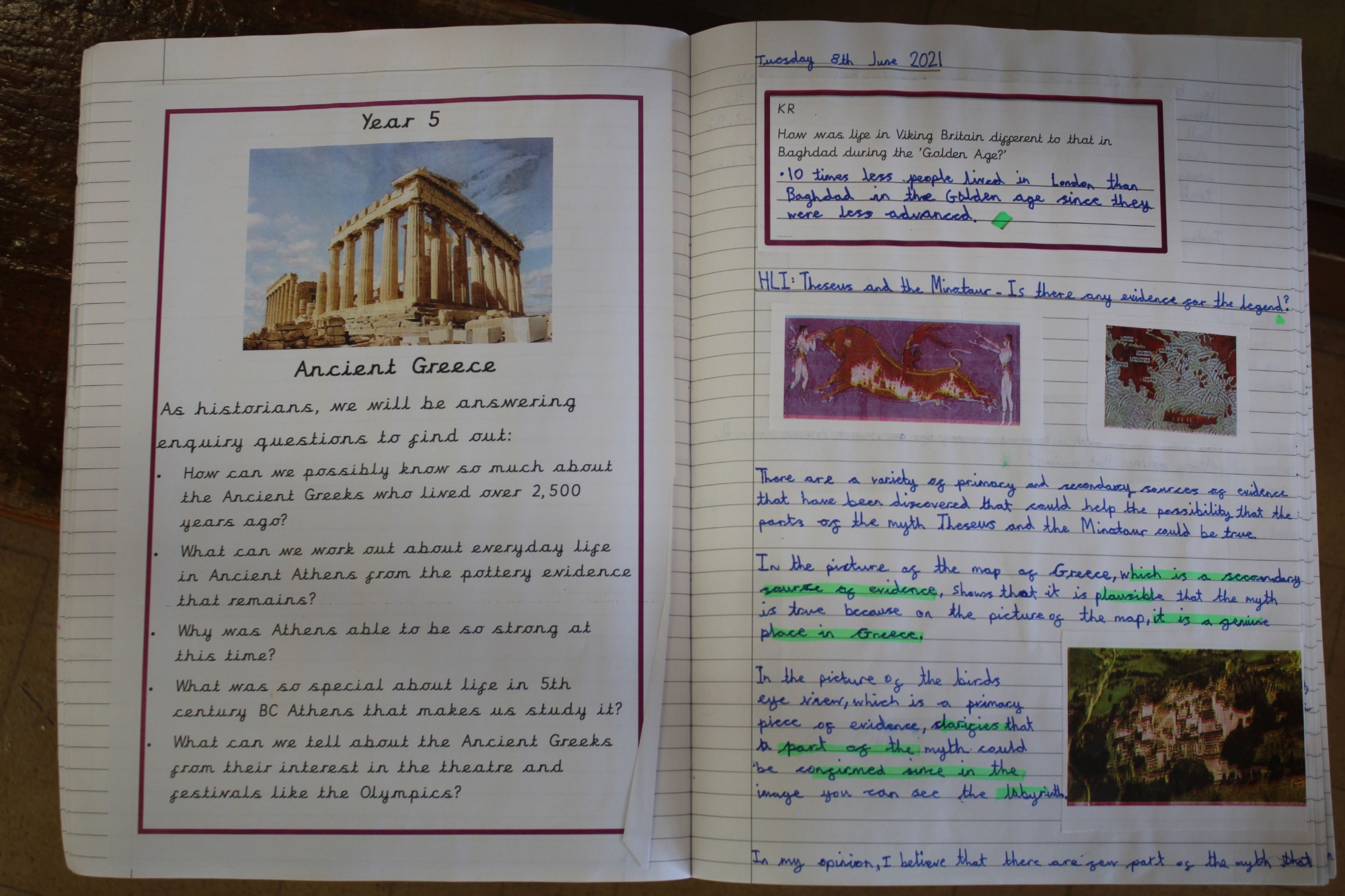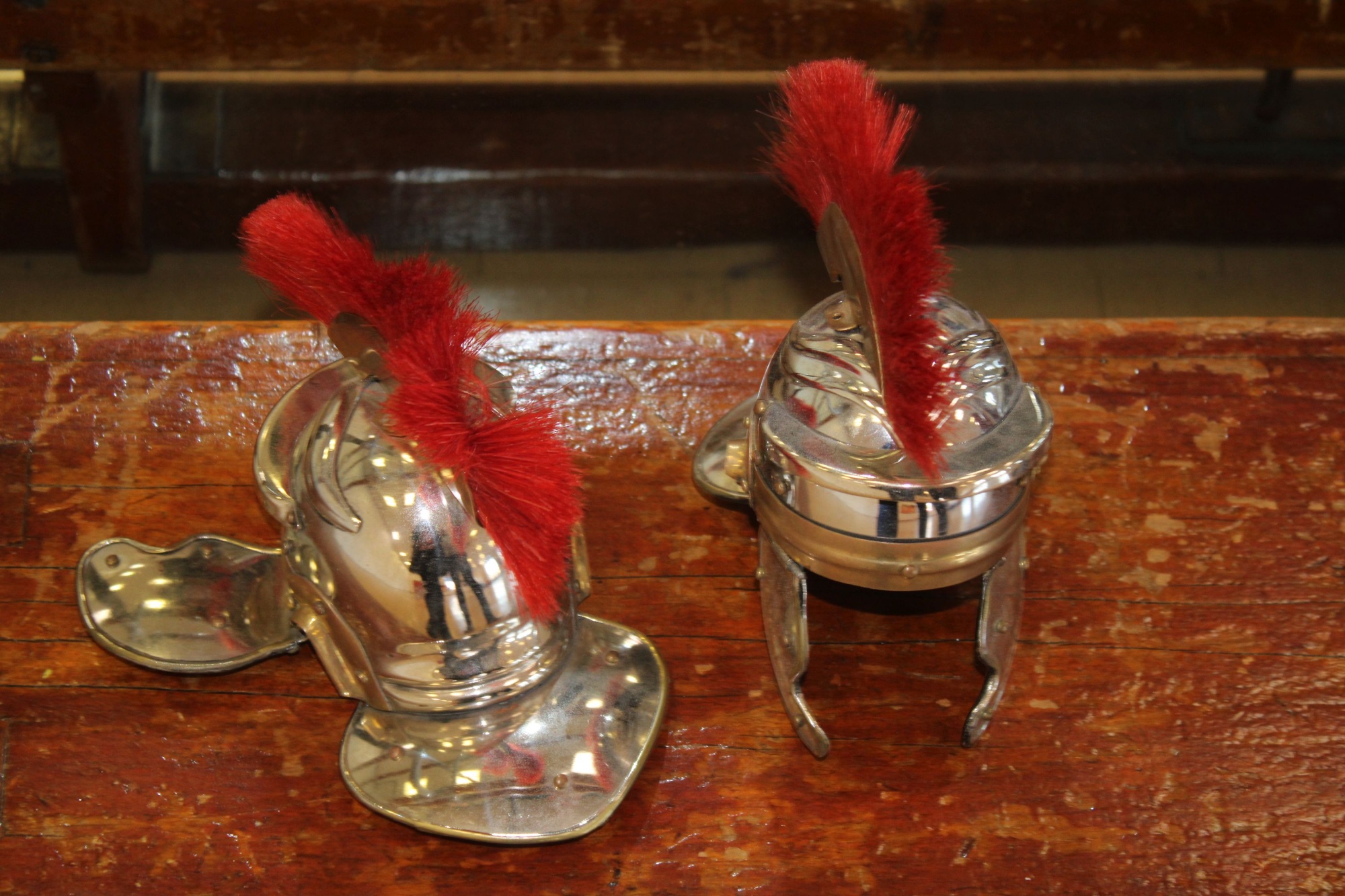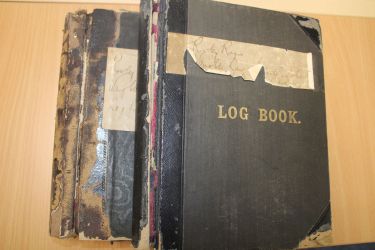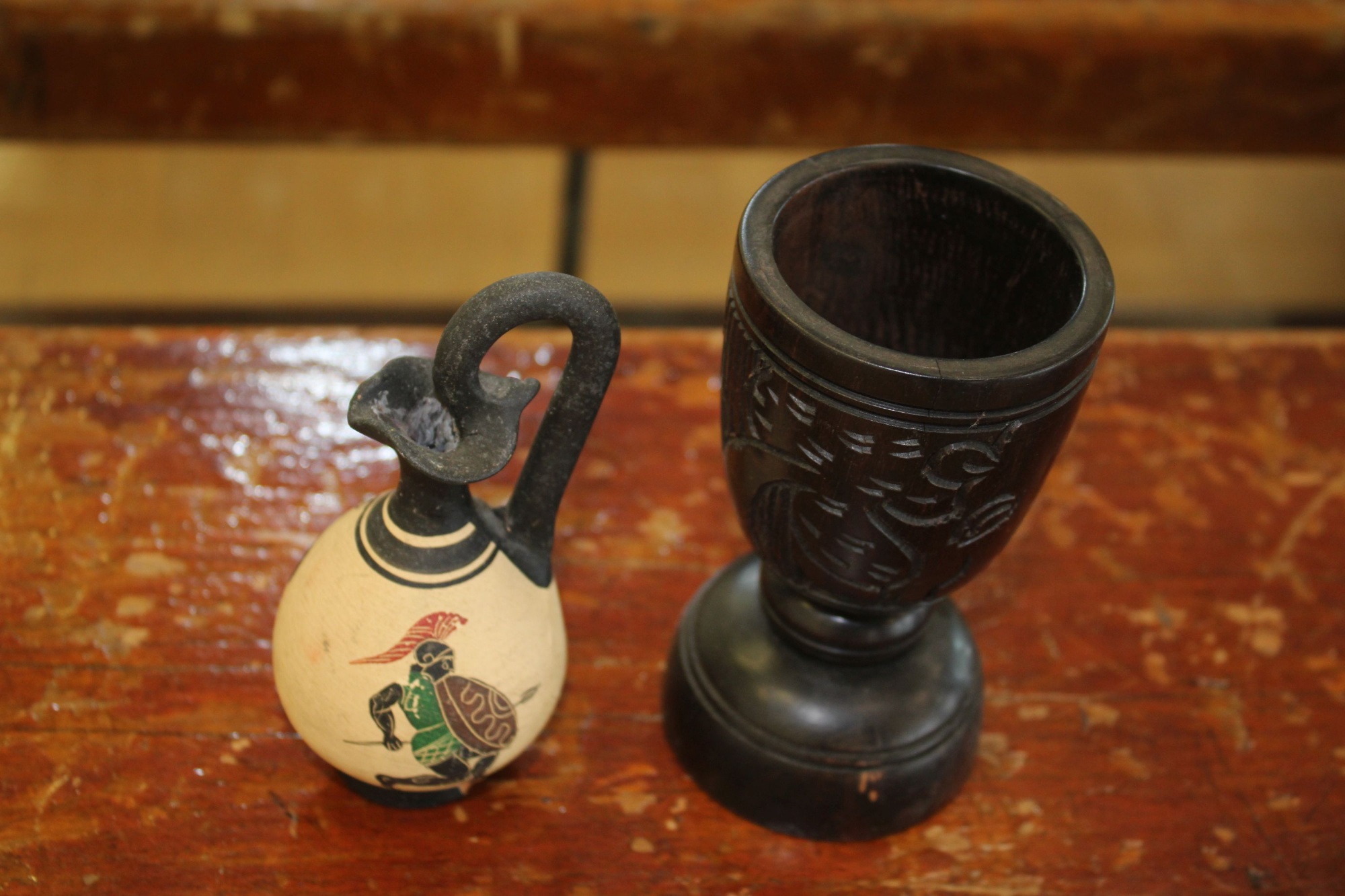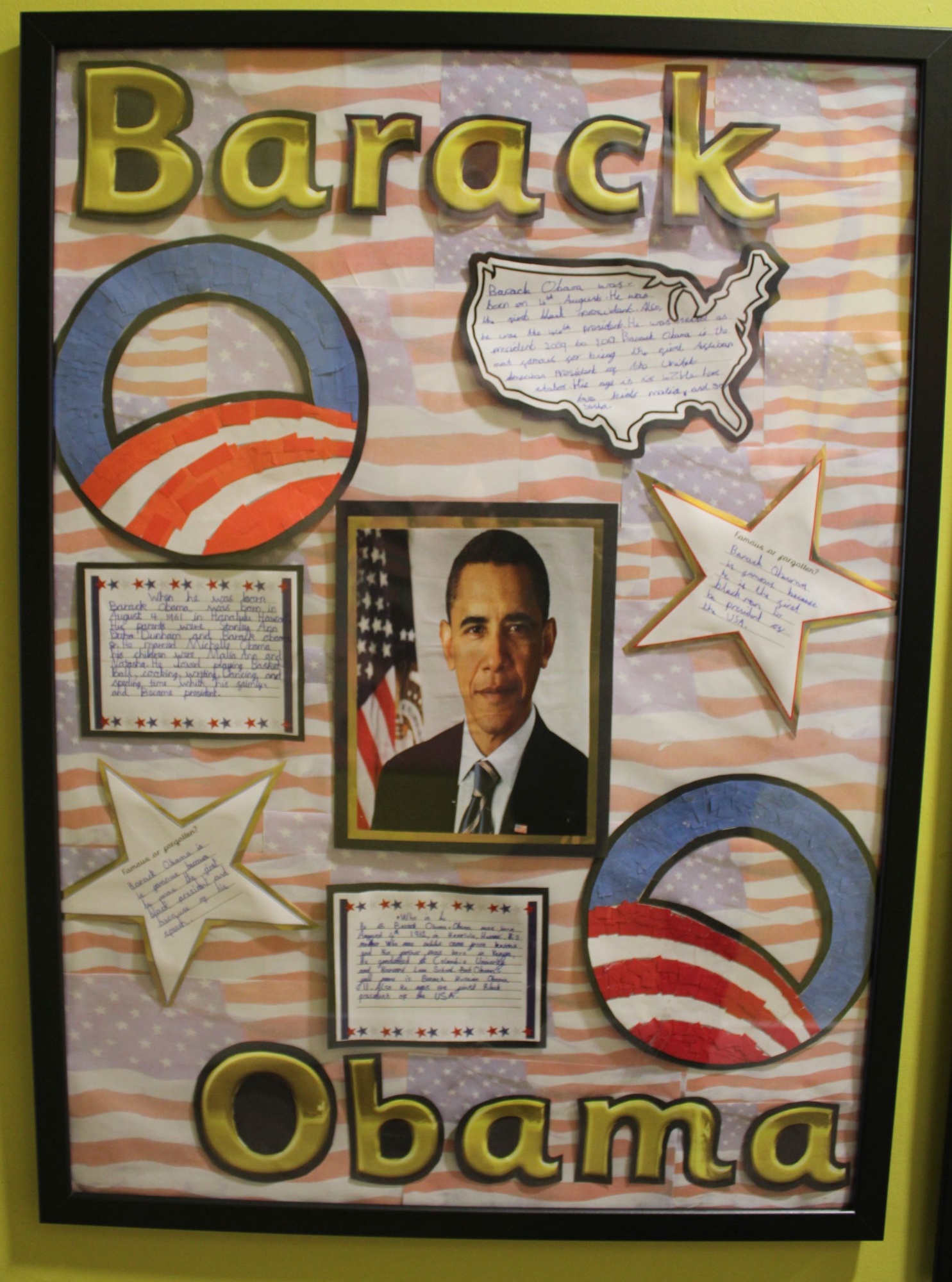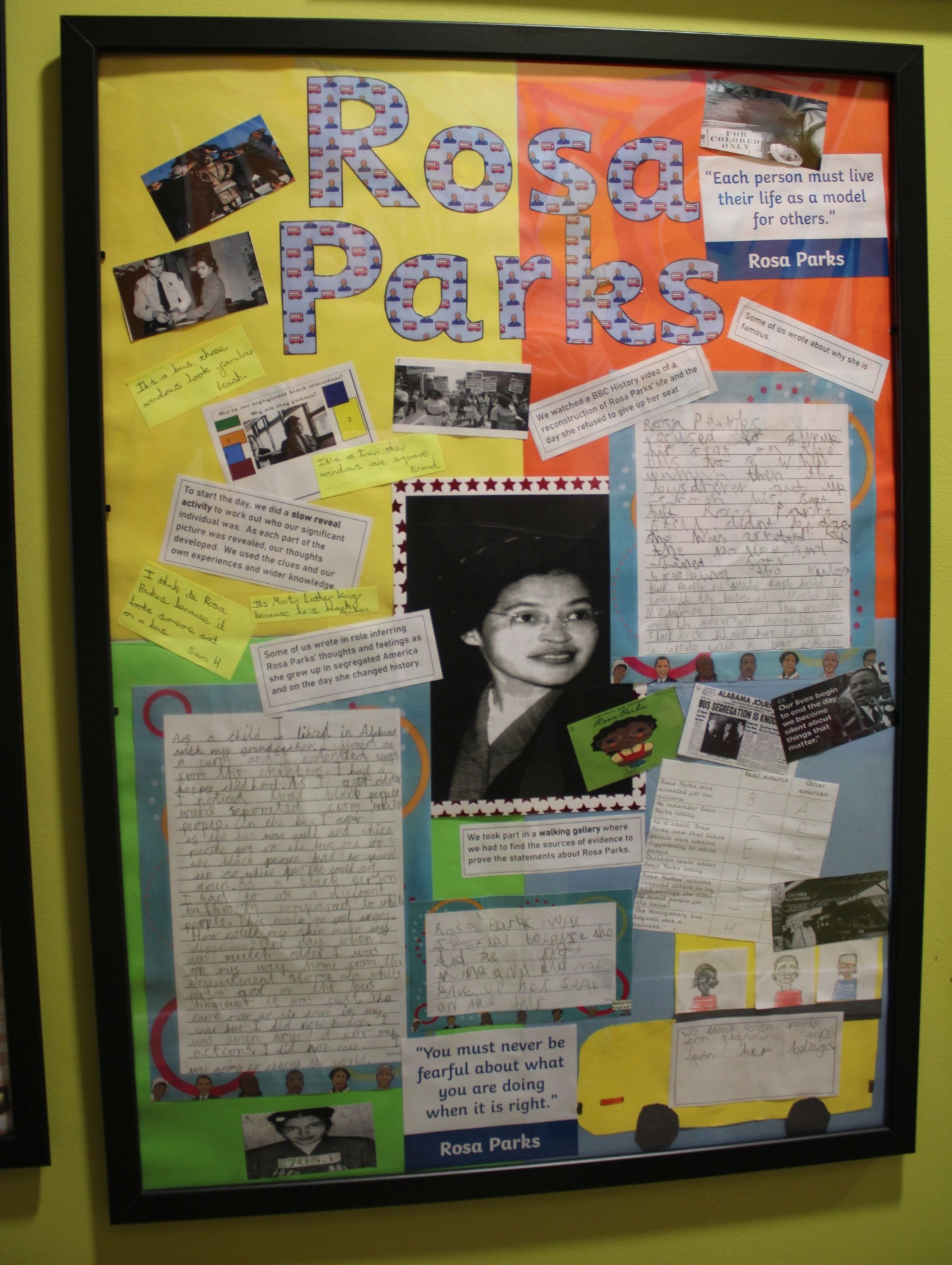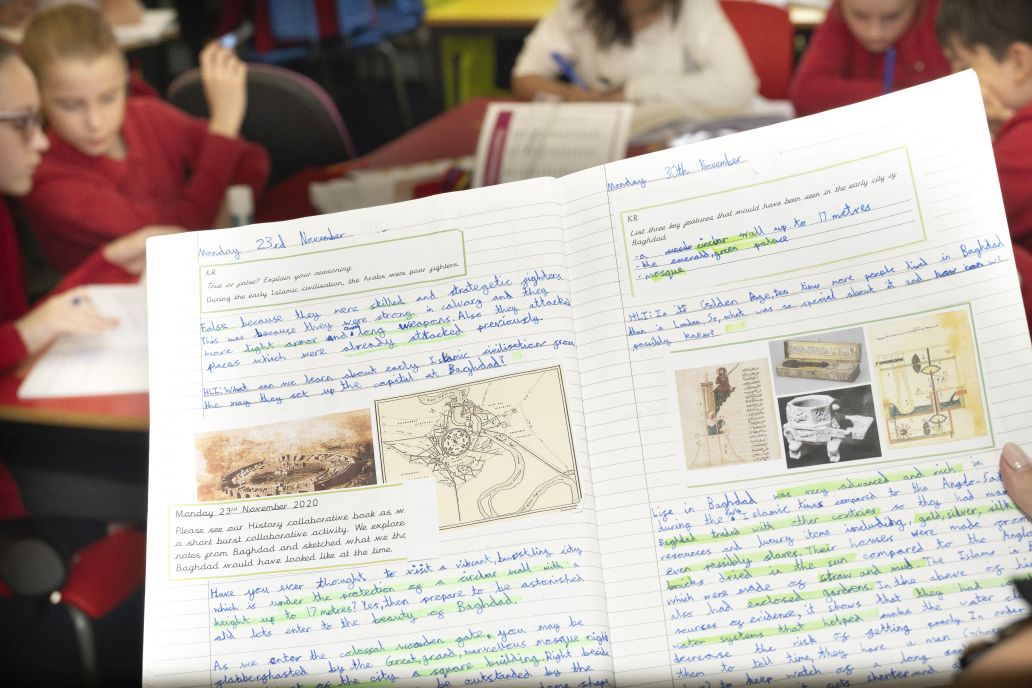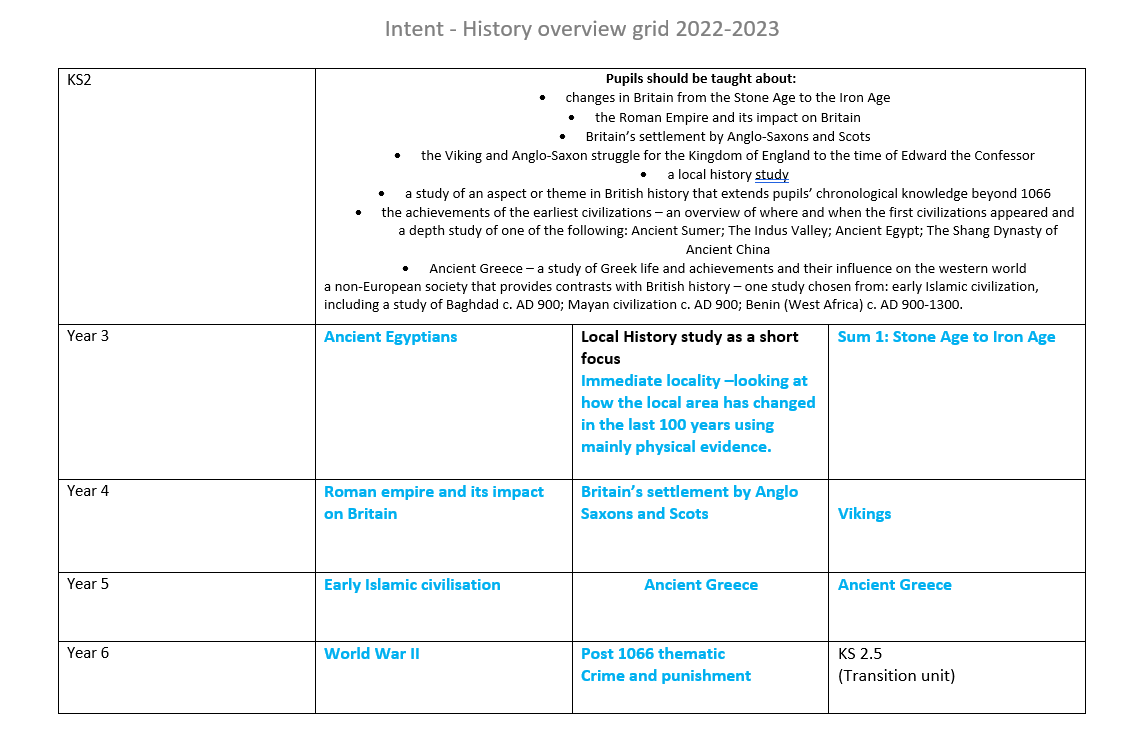History
Vision and intent for History
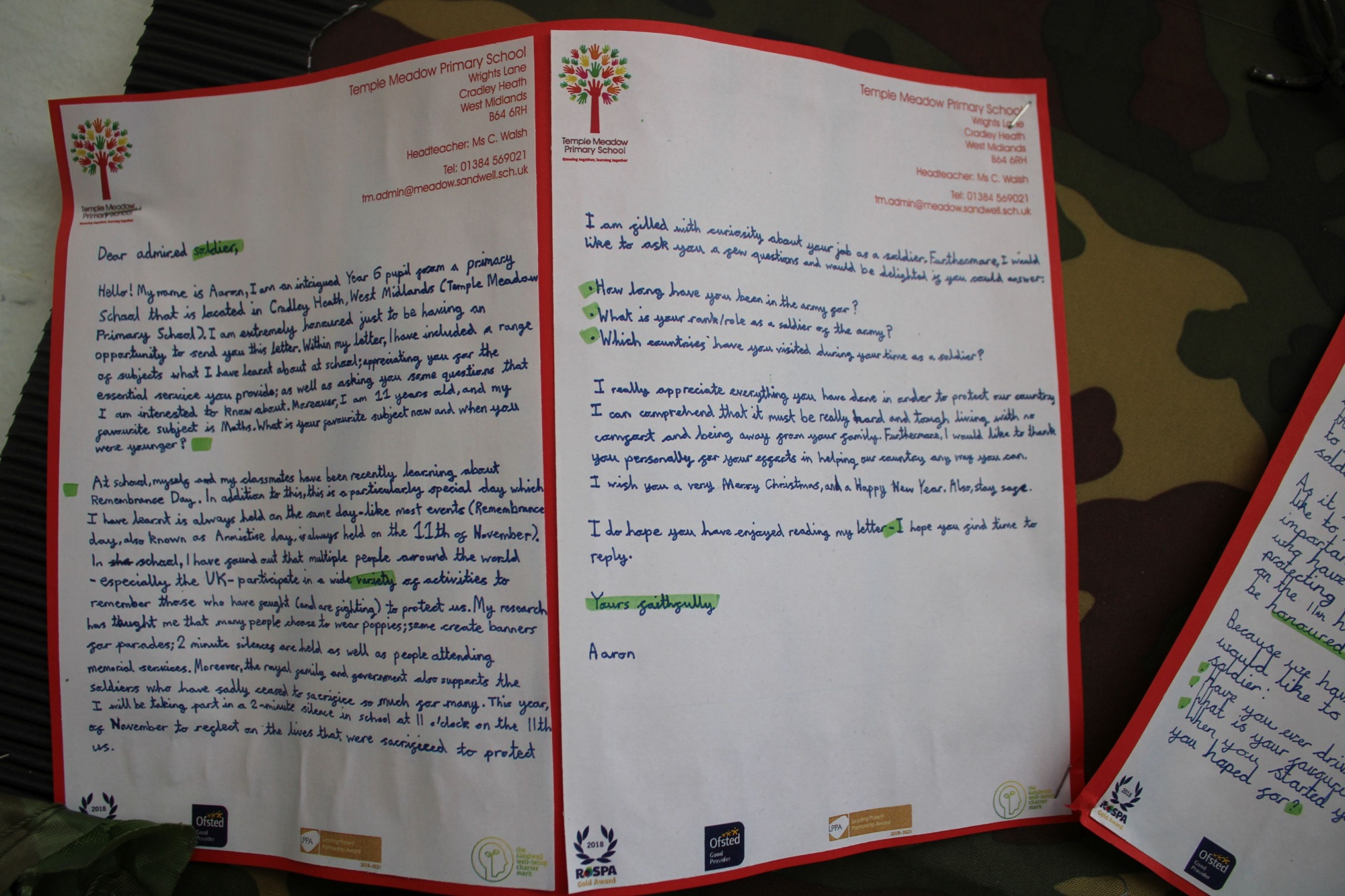
Our aim at Temple Meadow is to make teaching and learning as enjoyable as we can. To that end, we adopt an Irresistible Learning approach to our curriculum – packaging learning in a way that allows us to create memorable and adaptable learning experiences which include all National Curriculum requirements.
Cultural capital considerations for History
Given our context linked to high levels of deprivation, we are aware of the high need to support development of Temple Meadow pupils’ cultural capital. This is key to their future success in their next stage of eduction and in future life. We plan to ensure that the experiences we provide through our history curriculum and by connecting learning across subjects, gives them confidence and the capacity to succeed in the future and to support a long term aspiration of all UK pupils achieving in society.
The importance of History
History is essentially a story of the past. It is enjoyed as story full of colour, fascination and action. But more than this, we believe children need to understand history as a construct. The word history comes from the Ancient Greek ἱστορία (historía), meaning 'inquiry', 'knowledge from inquiry', or 'judge'. We believe children need to know the story of the past is told differently. They need to grasp that history is created from the evidence that still remains. Sometimes this evidence is fragmentary or contradictory so we have to weight it and test it for reliability. Historians have to find a way to make sense of this incomplete picture. They also have to make judjements about the accuracy of evidence from the past. All is not what it seems. If our learners are to make sense of their own 21st century world where all forms of media tell different stories about the same event, using different evidence and for different audiences, they need practice at handling these contradictions. They need to know which questions to ask. If they are taught history well, they will be given the necessary training to be open-minded and respectful of evidence later in life.
What is History?
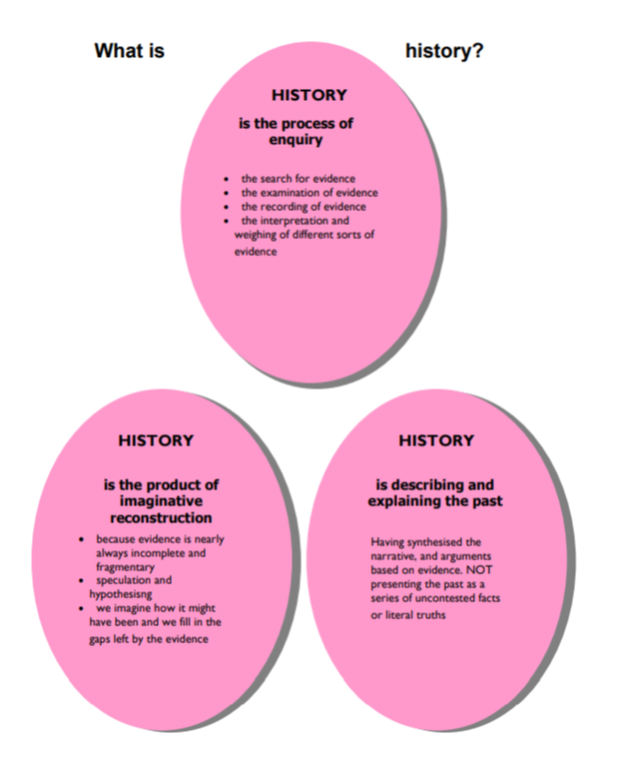
Implementation of History
We ensure pupils gain a clear understanding of often complex concepts by ensuring we allow for concrete and hands on learning as a means to develop abstract understanding. For example, through direct contact with primary and secondary sources and through role play and simulation, we help learners immerse themselves in the period and people of the society studied.
Ultimately, we believe that our distinctive Temple Meadow History curriculum is one that best suits the needs of our learners. It meets full national curriculum requirements, delivered in an ‘irresistible’ approach utilising creative teaching ideas. It is our intent that whilst delivering national curriculum, we progress and develop new skills in all learners as well as embed and consolidate existing ones. With this in mind, our history curriculum long term plan accounts for progression in five key areas which underpin the national curriculum programmes of study.
These are:
- Characteristic features of societies – what made them distinctive in their beliefs and lifestyles
- Change and continuity – including chronology, similarity and difference, and historical perspectives
- Cause and consequence
- Interpretations
- Enquiry
Through this progression, it is our intent to have continuity of development of historical skills. Some history units lend themselves more to the development of certain skills and concepts than others and we have taken account of this in our progression but it is our intent not to place undue emphasis on one skill in one year and then not revisit that skill in depth for a long period of time. Therefore many skills are constantly revisited across the year and key stage in varying degress of depth to keep developing and embedding them.
It is our intent that through this progression our learners ‘get better at history’. They study topics in greater depth. They make links and comparisons between topics studied as they move through school. They develop a deeper chronological understanding, so that their thinking is freer from anachronism, more specific in terms of dates and much more aware of a sense of period. We are aware that this will only happen if links and comparisons are made in the teaching. For these reasons it our intent to strategically place some ‘topics’ in certain year groups/key stages.
- Our longer term thematic study features in Year 6 because it requires learners to make links and to look back, making connections with earlier studies.
- The same is true with our Ancient Greeks topic which features in Year 5 as it is a topic which focuses on legacy thus enabling learners to see how the Greeks influenced for example Roman buildings (studied in Year 4) and the modern Olympics.
- Our local history unit in Year 3 builds on and widens skills in Year 2 as it broadens the focus from simple changes in the built environment in our immediate surroundings (our Victorian school) to our wider local area (how it has changed in the last 100 years using mainly physical evidence).
- Our Year 5 early Islamic society study comes directly after our Year 4 studies of the Vikings in order to compare this society to what was happening at the same time in Britain and to see how much more advanced society was in the east.
- Our British history units are delivered chronologically so that our learners develop some chronological sequence to the history of Britain.
It is our intent to progress the skills in these areas across year groups and between key stages so that by the end of their Primary education, our learners have a framework of knowledge into which new information can be placed, and a bank of skills which can be honed and transferred as they progress through into secondary school and their lives beyond.
Tailoring learning to local circumstances and diversity
At the time of creating our history curriculum, it has become ever more apparent just how important it is to look at the past in order to go forward. With the Black Lives Matter (BLM) campaign as a cultural issue in society, there has been an awakening about our history and for some people the first time they have appreciated that history has bias. It is our intent that our learners understand that there is no one universal ‘true’ history. All history has unconscious bias. BLM brings to focus how black lives have been written out of history or how the history linked to black lives has been sanitised and unchallenged. Therefore, it is our intent to allow our learners to challenge this, we therefore study Mary Seacole alongside Florence Nightingale in our Key Stage one study of the lives of significant individuals in the past who have contributed to national and international achievements with a particular focus on the themes of fairness and different interpretations of the past and what is seen as important. With particular reference to comparing the different achievements of the two women and considering how they should be commemorated, it is our intent that our learners consider ideas on justice, rights and who, or what deserves commemoration and does this change over time?
Similarly, it is our intent through our choice of early Islamic society in the 9th and 10th centuries for our non-European study in Year 5, to give our learners with and living alongside those with a Muslim faith the opportunity to see how much the west has in common with early Islam and how much we owe to each other; to appreciate cultural diversity; to give our learners from Islamic backgrounds a sense of identity and worth in history studies.
Deepening learning
Many of our topics have been placed strategically so that learners can deepen their thinking and make links between societies in Britain and the wider world in the same period, understand and see legacy by comparing features, beliefs and ways of life left behind and see relevance that history has to today’s 21st century world.
Ensuring each topic is packed with active learning opportunities
It is our intent that our history curriculum is rich in knowledge and skills and delivered through imaginative, creative and varied activities. Children may well work in the role as explorers, film directors or even spies! Many of our learning activities foster a ‘hands on’ approach with children finding out for themselves, prioritising, critiquing, judging, evaluating, rejecting and analysing. It is our intent to showcase our ‘irresistible’ approach in our History practical evidence books.
It is our intent to provide opportunities for pupils to work independently as well as collaboratively in groups. The range of learning activities that underpin our enquiry focused learning objectives support both independent and collaborative work.
Ensuring children are taught the broad chronology of major events and periods
It is our intent to give the key concept of chronology serious attention. We plan for its progressive development within and across key stages, making sure each topic embeds and progresses necessary skills. In conjunction to this, through use of Timebox, learners are able to attribute key iconic images to appropriate periods/people/societies as well as spot anachronisms. They attribute time markers, key dates and periods and consider issues of duration and interval as well as make links between different societies and periods. They use key historical vocabulary, spot milestones and appreciate legacy.
National Curriculum coverage
We implement all NC expectations for History. At Temple Meadow we have use enquiry based questions in the form of KQs (killer questions) to support our HLI (Historical Learning Intentions) for each learning episode.
As a school we subscribe to the KeyStage History website: https://www.keystagehistory.co.uk/ to support best practice in history teaching and learning. It is from here that we get our KQs (killer questions) that we use to frame each learning episode. We also benefit from creative teaching and planning ideas as well as access to quality primary and secondary sources to support the subject knowledge of staff and underpin our vision and intent for History provision.
History enquiry based questions
We feel that history is best delivered around enquiry and that historical enquiry is an active process of investigation in which pupils are fully engaged. We therefore focus our history teaching around enquiry with each learning episode including open ended activities in which pupils are independently discovering things for themselves as well as more tightly teacher controlled activities, and a full range of less or more structured approaches in between.
Strands and Long Term Plan
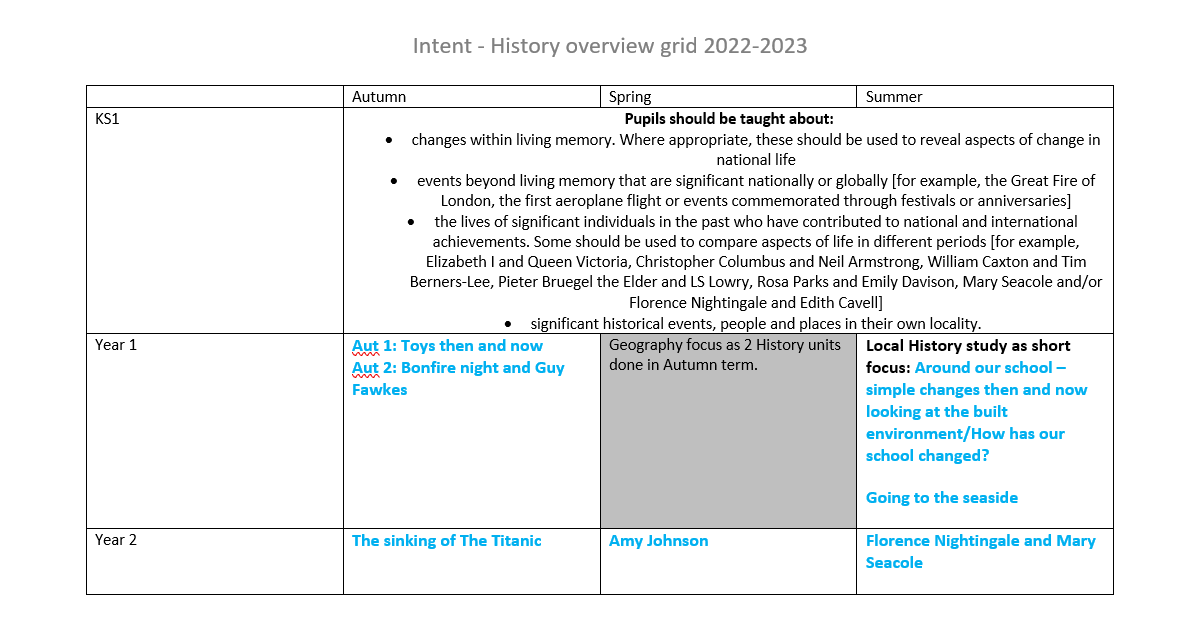
History overview (Long Term Plan)
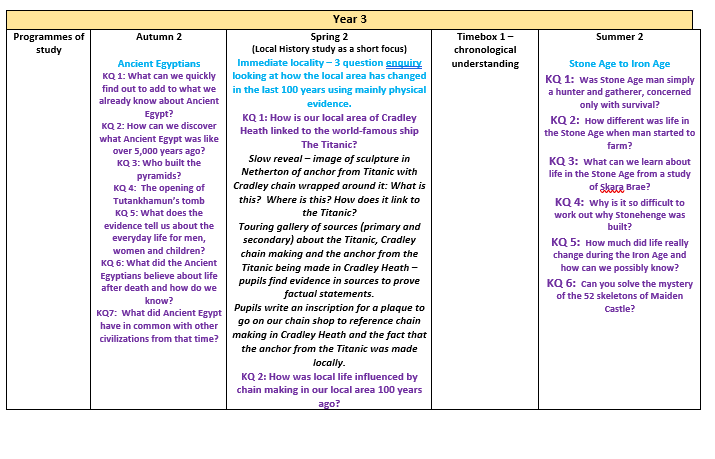
Knowledge organisers
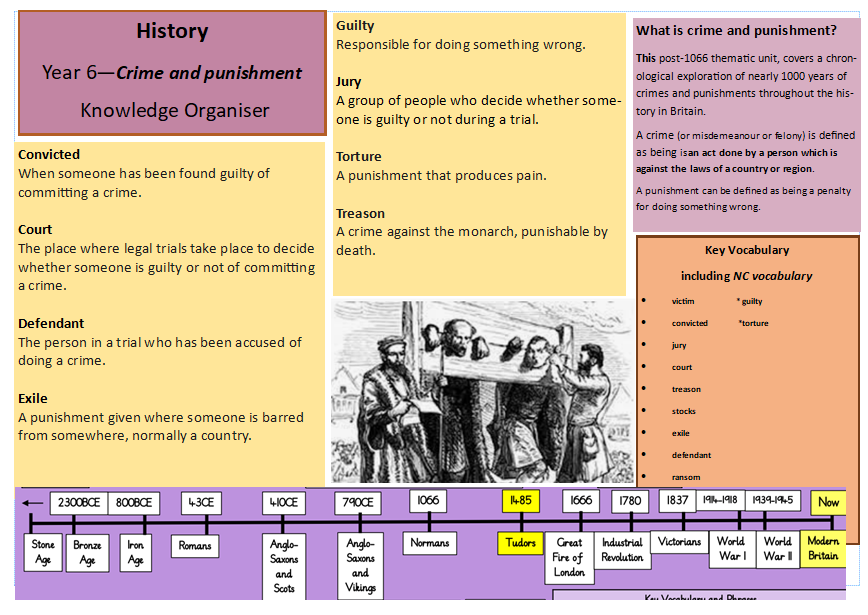
Timetabling
History is taught discreetly and there is a clear timetable slot allocated.
Continuous provision
We always ensure we have slots to support Continuous Provision. For example, something significant may be happening in the local community or wider world that has a historical interest; this develops a culture where we ensure learning is relevant and connects to wider external issues.
Learning episodes
Our Learning episodes ensure that pupils appreciate that they are ‘historians’ and they are clear regarding the HLI (Historical Learning Intent).
Retrieval practice
Learning episodes cater for new knowledge and skills as well as retrieval of prior learning from previous sessions and over time, supporting long term memory retention. Many topics, which have been strategically mapped out in terms of when they are covered and by what year group, also develop and embed retrieval as they call for pupils to make links to prior knowledge, apply previously acquired skills and look for connections between periods and civilisations; investigating similarities and differences, looking at legacy and spotting anachronisms.
Vocabulary
Vocabulary has high focus and children are expected to develop a secure vocabulary to talk about the past, including the use of specific terms to establish period detail. We make smart links to morphology (structure of words) and etymology (the origin of words).
Resources
All pupils will explore high quality primary and secondary evidence. These will be used frequently in learning episodes to build understanding of history topics and develop historical skills.
Inclusion
Teachers are always mindful of inclusion and differentiation. Learning must meet the needs of all pupils. We are a diverse school community so it is important that history reflects a curiosity about all peoples lives in the past.
Making connections to other subjects
Many of the teaching and learning activities delivered in support of our key enquiry questions have literacy at the heart. Whether this be in terms of a high quality written outcome; speaking and listening opportunities through debate and knowledge builder activities; or reading skills through the interrogation and deduction from written and pictorial sources. In addition, some learning activities also foster maths skills through the analysis and concluding of graphs and charts and tabulated data. Computing skills also feature with learners asked to produce short film clips and electronic quizzes as examples.
All History links make links to literacy. We also make smart links to Maths and Computing.
Continuous Provision supports making connections.
Enabling learning enviroments
Every classroom has a History display board which showcases and supports the knowledge and skills that are building up in the learning journey within a topic as well as pupil outcomes. A range of History books – linked to the current topic= are also displayed and used in the classroom to spark pupil’s curiosity and support learning in a topic.
Assessment
Throughout the teaching of each History strand, teachers assess against a pupil’s understanding using an online assessment tracker (Learning Ladders). Throughout the academic year, these are updated based on a pupil’s attainment.
This assessment is completed after the lesson has been taught, when the outcomes are being assessed.
The impact of teaching and learning is then measured. Teachers take ownership of their own assessment data and appraise whether a particular objective needs revisiting at a later date, whether security has been reached or whether a fluid intervention needs providing. Analysis of data is also conducted by the History curriculum lead on a termly basis. The analysis is shared with teachers and SLT and is used to inform the curriculum lead’s action plan and subsequent subject developments and monitoring.
Each term, the History curriculum lead completes a report on the strengths, weaknesses, opportunities and threats to History to the Governing Body, as well as providing an outline of actions that have been completed to move History forward as per the Leadership Log.
Enrichment
To build Cultural Capital to support lifelong success as learners and citizens, the curriculum at Temple Meadow must be experiential, hands on and imaginative. We value enrichment to support our values.
Trips and visits
When planning the delivery of the History curriculum for their year group, teachers are encouraged to look for opportunities where external trips and visitors to school will enrich teaching and learning and provide memorable experiences for all learners. These trips and visits are facilitated by following our school Trips and Educational Visits policy. There is no set quota of the number of history based trips or visits a year group is to experience in a year; along with all other wider curriculum subjects, trips and visits must support and enrich teaching and learning and are undertaken where there is significant value to leaning experiences.
Outdoor learning
At Temple Meadow, we promote a hands on, experiential and irresistible curriculum and as such, outdoor learning provides the domain and indeed the requirement for many of the national curriculum objectives to be delivered. Whether it be through going on an external trip or simply using the locality and school grounds to anchor learning and provide the concrete to the abstract (for example in our Year 1 and Year 3 topics on local history), we promote and seek opportunities where possible to provide outdoor learning experiences.
Focus days
Focus days are held when an opportunity presents itself either within school, nationally or globally to explore an issue/achievement/commemoration/cause or concern. Focus days are determined by the History lead and are planned in terms of what form they will take, year groups involved, outcomes, display, assessment and stakeholder involvement. A focus day will present an opportunity where other curriculum subjects can lend themselves to facilitating the purpose of the focus, for example Black history month may use writing skills to argue that history should be representative of all cultures, races and religions and to look at why we have historical bias and how interpretations are effected by it. Focus days should inspire in pupils a curiosity and fascination about the past and its people.
Showcase of work
